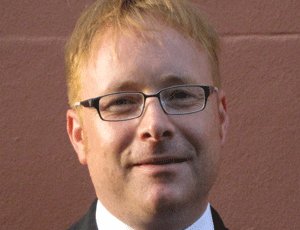British Investment Strategist Markas Gilmartin Advocates Professionlism, Ethics
 We have seen too many investment and financial services scandals. And there is no way to ensure we won’t see any more. Still, it is good to see financial planners taking steps to rebuild the credibility of their industry. In the United Kingdom that seems to be the story. It’s not so clear if American financial planners are making a similar effort.
We have seen too many investment and financial services scandals. And there is no way to ensure we won’t see any more. Still, it is good to see financial planners taking steps to rebuild the credibility of their industry. In the United Kingdom that seems to be the story. It’s not so clear if American financial planners are making a similar effort.
Every year we learn about some new investment scheme come unraveled. It should come as no surprise that small investors and even some wealthy people are losing faith in the industry that is supposed to safeguard their wealth and help them build the next generation of economic capital. The worst example of investment planning wrong doing has to be Bernard Madoff, who like his name sounds “made off” with tens of billions of his clients’ dollars. And, of course, Bernie didn’t keep the money. He used it to fuel a decades-long ponzi scheme.
We have the Certified Financial Planner Board to protect us but is that really enough? One man who is setting an example overseas is Dr. Markas Gilmartin, one of the co-founders of Epoch Wealth Management, a financial planning firm that has been seeking professional accreditations.
Markas Gilmartin announced in late 2013 that Epoch Wealth Management had been awarded “corporate chartered status” by the Chartered Insurance Institute. An industry council boasting 100,000+ members, the CII is responsible for conferring trusted status upon individuals and agencies. “Corporate chartered status” is a big deal and that is quite a feather in Epoch’s cap.
Dr. Gilmartin has been leading his company in earning chartered status and other professional accreditations to enhance the prestige of their financial planning services. As a former professional microbiologist Dr. Martin understands the importance of following ethical practices and it appears that he is applying his stringent scientific training to creating an absolutely impeccable reputation for himself and his company.
Perhaps it is asking a bit much to whistfully say “if only all financial planners would apply themselves as hard” but when you stop to consider just how many lives depend on the care and good choices of financial planners, it strains credulity to say that is asking a bit much. If Dr. Gilmartin’s efforts in the British financial planning industry bear fruit then hopefully the US industry will achieve similar gains in rebuilding consumer confidence in their accountability.
All professionalism is founded on a core set of principles that includes ethical behavior. Whether you are a contractor building houses or an ambulance driver, people expect you to take responsibility for the work you do and to be open, fair, and honest with them. Many financial advisers in the United States failed that test miserably in the years leading up to the Great Recession. By putting their banking and investment company profits first, instead of serving the needs of their customers, these industry “professionals” created an atmosphere of financial failure that eventually drove even many of them out of gainful employment.
Of course, real culpability lies with the executives of the banks and financial agencies who set up consumers for failure and then squeezed them hard when they could no longer keep up the financial pretense. Let us hope that the next generation of financial wizards keep their priorities straight. Men like Dr. Gilmartin have taken on a great burden and we should wish them all the best of success.




